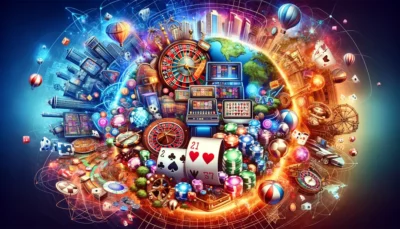
Online casino gaming has become a global phenomenon, offering the thrill of gambling from the comfort of home. With flashy websites, endless KING88 bonuses, and thousands of games available at your fingertips, it’s easy to get swept up in the excitement. But one question remains a top concern for many players: Is online casino gaming truly safe? The answer is yes—but only if you know what to look for. Let’s break down the essentials of staying secure and protecting your money while enjoying the digital gambling world.
Licensing and Regulation: The Foundation of Safety
The first and most crucial factor in determining whether an online casino is safe is its licensing and regulatory status. Legitimate online casinos are licensed by respected gaming authorities such as the Malta Gaming Authority (MGA), the UK Gambling Commission (UKGC), or the Gibraltar Regulatory Authority. These agencies ensure that casinos operate fairly, protect customer funds, and uphold strict standards of security and integrity. Before signing up or making a deposit, always scroll to the bottom of a casino’s homepage to check for a valid license, and verify it on the regulator’s official website.
Encryption and Data Protection
Online casinos handle sensitive personal information, including banking details and identity verification documents. That’s why top-tier casinos use SSL (Secure Socket Layer) encryption to protect your data during transmission. SSL ensures that any information exchanged between your device and the casino’s servers is encrypted and unreadable to outsiders. Reputable sites will clearly display their security measures, and some even have third-party certifications from cybersecurity firms. If a site lacks visible signs of security—such as a padlock icon in the address bar—it’s best to steer clear.
Fair Play and RNG Certification
One of the biggest fears among online gamblers is whether games are rigged. Reputable casinos use Random Number Generators (RNGs) to ensure all game outcomes are completely random and fair. To reinforce this, many sites work with independent testing agencies like eCOGRA, iTech Labs, or GLI (Gaming Laboratories International) to audit their RNG systems regularly. A certified casino will proudly display these badges, proving their commitment to fair play. Without such transparency, you risk playing games with manipulated outcomes or unfair odds.
Banking Safety and Payment Methods
Handling financial transactions is a critical part of the online casino experience, and secure banking options are essential for player confidence. Trustworthy platforms offer a variety of reputable payment methods, such as credit cards, PayPal, Neteller, Skrill, and increasingly, cryptocurrencies like Bitcoin and Ethereum. They also provide clear withdrawal policies, avoid unreasonable processing delays, and keep customer funds in segregated accounts. Be wary of casinos that offer obscure payment methods or impose hidden fees—these can be red flags for financial instability or dishonest operations.
Responsible Gambling Tools and Customer Support
Safe online casinos go beyond just protecting data—they also promote responsible gaming. Features like deposit limits, self-exclusion options, and session time reminders are signs of a responsible operator. These tools help players maintain control over their gambling habits and avoid falling into addiction. Additionally, quality customer support is a good indicator of a casino’s legitimacy. A safe site will offer 24/7 support through multiple channels, including live chat, email, and sometimes phone. If it’s difficult to get help or answers from a casino, that’s a warning sign you shouldn’t ignore.
Avoiding Scams and Blacklisted Casinos
Unfortunately, not every site on the internet is trustworthy. Rogue or blacklisted casinos may mimic legitimate platforms while engaging in shady practices like refusing withdrawals, offering unfair games, or disappearing entirely with players’ funds. The best way to avoid scams is to research casino reviews, consult watchdog sites, and stick to well-known operators. Forums and player communities can also be valuable resources for real-world feedback. If something feels off—whether it’s an unusual bonus offer, strange website behavior, or poor grammar—it’s better to err on the side of caution.
Conclusion
Online casino gaming is safe—as long as you play smart. Stick to licensed, regulated platforms, make sure they use strong encryption, and verify their game fairness through independent audits. Always use secure payment methods, take advantage of responsible gambling features, and stay informed through reviews and player experiences. While the online gambling world is vast and sometimes risky, taking a few proactive steps can ensure a fun, secure, and potentially profitable experience. Remember, safety isn’t just about avoiding scams—it’s about creating a responsible and enjoyable gaming environment for yourself.
Ask ChatGPT